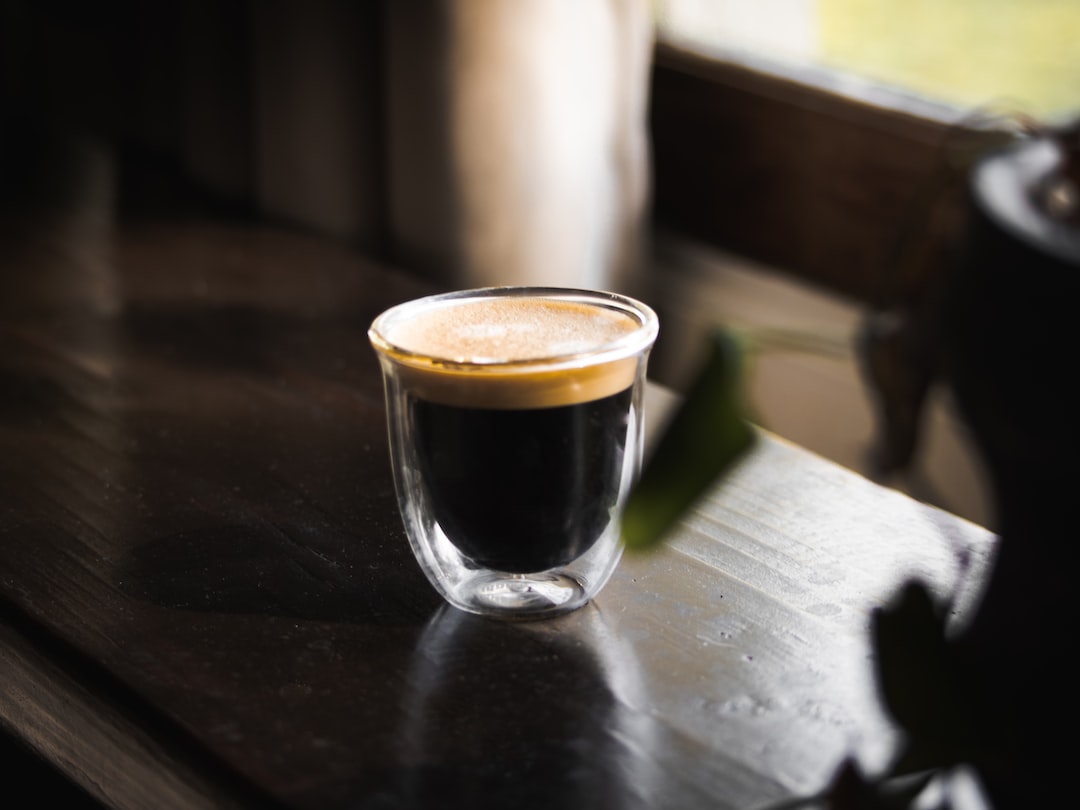Espresso is one of the most beloved coffee drinks worldwide, but understanding how many oz for espresso can be confusing for beginners. Whether you're a coffee enthusiast or a barista, knowing the exact measurements ensures you craft the perfect shot every time. This article dives deep into the nuances of espresso measurements, exploring everything from the ideal ounce count to advanced techniques for brewing.
Espresso has become more than just a drink—it's an art form. The rich aroma, bold flavor, and creamy crema make it a favorite among coffee lovers. However, mastering the art of espresso requires precision, and understanding the correct volume is key to achieving perfection.
In this comprehensive guide, we'll explore the ideal measurements for espresso, discuss variations, and provide expert tips to elevate your coffee game. By the end of this article, you'll have all the knowledge you need to brew espresso like a professional barista.
Read also:How Old Is Dana Perinos Husband A Comprehensive Guide
Table of Contents
- Espresso Basics: Understanding the Drink
- How Many Oz for Espresso: The Standard Measurement
- Types of Espresso Shots: Single vs. Double
- Factors Affecting Espresso Volume
- How Equipment Impacts Espresso Volume
- Tips for Perfecting Your Espresso
- Creative Espresso Recipes Using Standard Measurements
- Common Mistakes to Avoid
- Frequently Asked Questions About Espresso Volume
- Conclusion: Mastering the Art of Espresso
Espresso Basics: Understanding the Drink
Espresso is a concentrated coffee beverage made by forcing hot water through finely ground coffee beans under high pressure. Unlike regular drip coffee, espresso is brewed quickly, typically in under 30 seconds, resulting in a rich, intense flavor profile.
Originating in Italy, espresso has become a cornerstone of coffee culture globally. It serves as the base for many popular coffee drinks, such as lattes, cappuccinos, and macchiatos. Understanding the fundamentals of espresso, including its volume, is essential for crafting the perfect cup.
History of Espresso
The invention of the espresso machine in the early 20th century revolutionized coffee brewing. Luigi Bezzera is credited with creating the first espresso machine in 1901, which allowed for rapid coffee extraction using steam pressure. Over time, advancements in technology refined the process, leading to the modern espresso machines we see today.
How Many Oz for Espresso: The Standard Measurement
When it comes to espresso, the standard volume is typically **1 to 1.5 ounces (30 to 45 milliliters)** per shot. This measurement applies to a single shot of espresso, which is extracted from about 7 grams of finely ground coffee. A double shot, on the other hand, yields approximately **2 to 3 ounces (60 to 90 milliliters)**.
These measurements are widely accepted in the coffee industry and serve as a guideline for achieving balanced flavor and strength. However, variations exist depending on the preferences of the barista and the type of coffee being used.
Why Measurement Matters
Proper measurement is crucial for several reasons:
Read also:Iykyk Meaning Decoding The Popular Internet Slang And Its Usage
- Consistency: Ensures each shot tastes the same every time.
- Flavor Profile: Affects the balance of acidity, bitterness, and sweetness.
- Strength: Determines the caffeine content and overall intensity of the espresso.
Types of Espresso Shots: Single vs. Double
Espresso shots come in different sizes, each with its own characteristics:
Single Shot
A single shot of espresso, as mentioned earlier, measures around 1 to 1.5 ounces. It's ideal for those who prefer a stronger, more concentrated flavor. Single shots are often used in smaller drinks like macchiatos or Americanos.
Double Shot
A double shot, or "doppio," is twice the size of a single shot, ranging from 2 to 3 ounces. It's the most common choice for larger drinks like lattes and cappuccinos. The increased volume allows for a more balanced flavor when mixed with milk or other ingredients.
Ristretto vs. Lungo
Two other variations worth mentioning are ristretto and lungo:
- Ristretto: A shorter shot (about 0.5 to 1 ounce) with a more intense flavor.
- Lungo: A longer shot (about 2 to 4 ounces) with a milder taste due to extended extraction time.
Factors Affecting Espresso Volume
Several factors influence the volume of espresso extracted:
- Grind Size: Finer grinds result in slower extraction and smaller volumes, while coarser grinds produce larger volumes.
- Tamping Pressure: Properly tamping the coffee grounds ensures even water flow and consistent extraction.
- Water Temperature: Ideal water temperature ranges from 195°F to 205°F (90°C to 96°C). Deviations can affect both volume and flavor.
- Coffee Bean Quality: Freshly roasted, high-quality beans contribute to better extraction and optimal volume.
Understanding these variables allows baristas to fine-tune their technique and achieve the desired outcome.
How Equipment Impacts Espresso Volume
The type of espresso machine used can significantly impact the final volume of the shot. Commercial machines, for example, often produce more consistent results compared to home machines. Key factors include:
- Group Head Design: A well-designed group head ensures even distribution of water.
- Boiler Capacity: Larger boilers provide stable water temperature during multiple extractions.
- Pump Pressure: Proper pump pressure (around 9 bars) is essential for optimal extraction.
Investing in quality equipment can make a noticeable difference in the taste and volume of your espresso.
Tips for Perfecting Your Espresso
Here are some expert tips to help you brew the perfect espresso:
- Use Fresh Beans: Freshly roasted beans offer superior flavor and aroma.
- Grind Consistently: A uniform grind size ensures even extraction.
- Preheat Your Equipment: Warm your portafilter and cup to maintain optimal temperature.
- Monitor Extraction Time: Aim for a 25 to 30-second extraction for the best results.
By following these guidelines, you can elevate your espresso-making skills and enjoy a consistently delicious cup.
Creative Espresso Recipes Using Standard Measurements
Once you've mastered the basics, try experimenting with these creative espresso recipes:
Caffè Latte
- 2 ounces of espresso
- 8 ounces of steamed milk
- A thin layer of foam on top
Cappuccino
- 1.5 ounces of espresso
- Equal parts steamed milk and foam
These recipes utilize the standard espresso volume, ensuring a balanced and flavorful drink every time.
Common Mistakes to Avoid
Even experienced baristas can make mistakes when brewing espresso. Here are some common pitfalls to watch out for:
- Over-Extracting: Leads to bitter flavors and excessive volume.
- Under-Extracting: Results in weak, sour-tasting espresso.
- Incorrect Grind Size: Affects flow rate and final volume.
- Inconsistent Tamping: Causes uneven extraction and poor-quality shots.
By avoiding these errors, you can consistently produce high-quality espresso.
Frequently Asked Questions About Espresso Volume
Q: Can I adjust the volume of my espresso?
A: Yes, you can adjust the volume by altering grind size, tamping pressure, and extraction time. However, it's important to maintain balance to avoid compromising flavor.
Q: Is it better to use a single or double shot?
A: It depends on your preference and the drink you're making. Single shots are stronger, while double shots offer more volume and versatility.
Q: How does temperature affect espresso volume?
A: Higher temperatures can increase volume but may also lead to over-extraction. Stick to the recommended range of 195°F to 205°F for best results.
Conclusion: Mastering the Art of Espresso
In conclusion, understanding how many oz for espresso is fundamental to crafting exceptional coffee. By adhering to standard measurements, considering key factors, and following expert tips, you can elevate your espresso-making skills to new heights.
We encourage you to experiment with different techniques and recipes to find what works best for you. Don't forget to share your experiences and tips in the comments section below. For more coffee-related content, explore our other articles and continue your journey to becoming a true coffee connoisseur!


